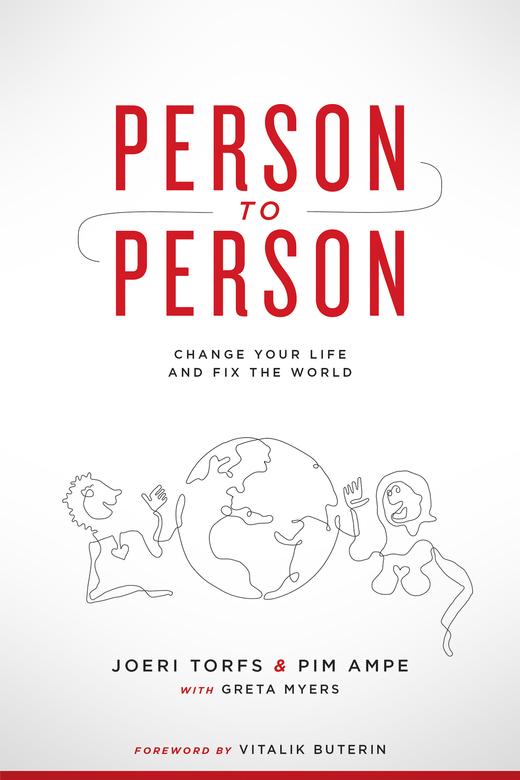
Authors Joeri Torfs and Pim Ampe with Greta Myers delve into a possible better path forward for our world in Person to Person: Change Your Life and Fix the World.
Examining the present day through a sparkling lens of technological knowledge, sociological insight, and philosophical foundations, these authors ask cutting-edge existential questions that are relevant for everyone. Partially inspired by a rare opportunity to breathe new life into an old space in southern France, this book blends a quartet of fictional characters with the speculative yet sober dreams of the authors.
Driven by the idea of creating a “heterotopia,” they present a societal structure dedicated to quality of life – one that avoids the growing culture of blame and instead focuses on relationships, connection, and shared responsibilities. Where this book could have easily veered into pie-in-the-sky dreaming, it reins in its own excitement, acknowledging the many obstacles and norms that would need to be overcome.
The structure of the book is critical, and is simply laid out for any layman reader to dive in. By beginning with the individual, and the work we each can do to liberate our minds, it personalizes this philosophy in a vital way, allowing for the next step to be toward the outward communities we connect with. Reimagining the economic and social environment is a tall order, but the authors comprehensively break down every step of this new world, from personal interactions to systemic breakdowns of everything from incarceration to the stock market to the need for increased housing availability and the rise of cryptocurrency. Collaborative concepts for revolutionary systems are an ongoing theme, starkly standing against the current models of individualism, capitalism, and competition.
What makes this book stand out is its potential broad appeal; the prose isn’t awash in spiritual lingo or abstract ideas of personal revolution or betterment. As such, the theories presented here will speak to many different minds, from a wide variety of social classes and belief structures. It is radical in a palatable way that more incendiary manifestos miss – the authors don’t attempt to sugarcoat the chaotic world into which we’re plunging, but they also don’t depict the solution as a paradise. Few books about our societal failings strike the balance of being both pragmatic and positive, yet this unassuming text does just that. Promoting mutual aid, autonomous communities, and a break from overpowering systems of control, this text does smack of far-left utopias, but the proposed ideas are organized, justified, and well-defended from obvious attacks.
Skeptics will point to certain propositions as reformations of existing systems of oppression, but the authors address this in the introduction – diversity of thought must always be respected. The examination of different technologies and their potential applications may not align with everyone’s values, but these cutting-edge discussions are important to hear and consider, particularly by younger generations of readers tasked with keeping society spinning as things continue to decline.
Edited to near perfection, this aspirational and original manual for the future is an inspiring call to arms, and does what other so many other works on this subject do not: offer actual solutions.
Book Links
STAR RATING
Design
Content
Editing
Get an Editorial Review | Get Amazon Sales & Reviews | Get Edited | Get Beta Readers | Enter the SPR Book Awards | Other Marketing Services























Leave A Comment